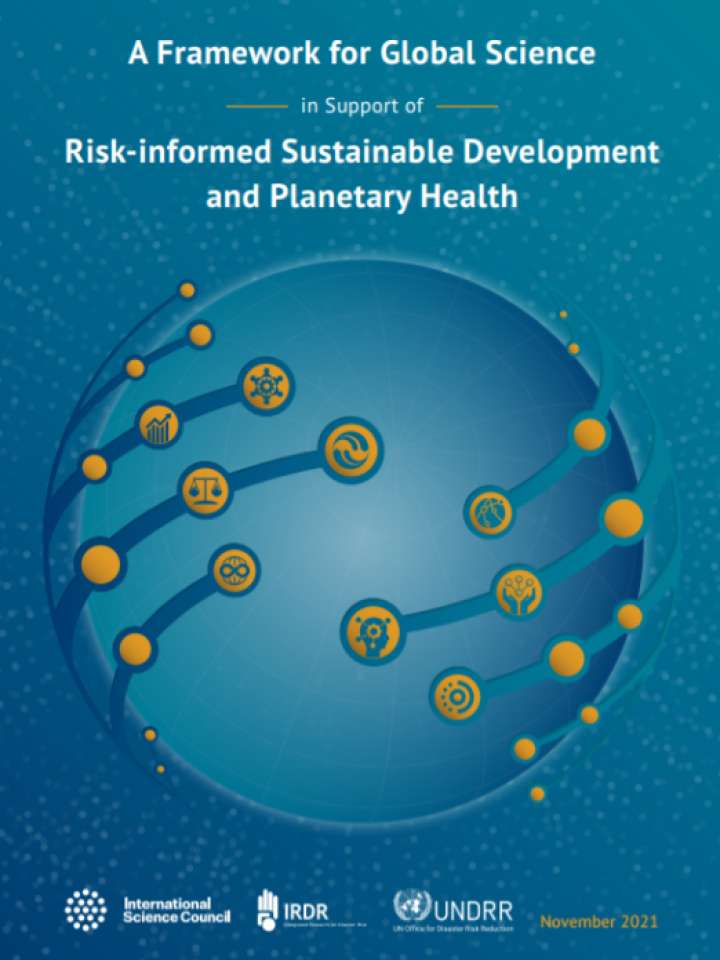A framework for global science in support of risk-informed sustainable development and planetary health
This document takes stock of recent developments in disaster risk science and provides a compelling set of directions for research and scientific collaboration for a more holistic and collaborative approach to understanding and managing risks. It challenges silos in science and in society and the notion that social, ecological, economic and technological systems can be understood in isolation from one another, and advocates for an increased focus on people. The consultation process has sought to engage widely across the scientific community working on disaster risk, climate change, sustainability, and development. It also engaged with indigenous scholars, and actors in the private sector and civil society.
This document highlights gaps and priorities that are emerging with implications for future research. First and foremost, a growing disconnect between knowledge and action is becoming apparent. One reason may be the lag between conceptual and theoretical advances and grounded knowledge and empirical data; another the lack of effective science to policy communication. Second, a holistic understanding of risk is lacking. While there is a plethora of quantitative and qualitative approaches to understand the manifestation, perception of and responses to risk, there is yet no integration of approaches that also account for diverse, placebased ontologies and epistemologies. Third, across scales and between regions and nations, knowledge production suffers from significant imbalance and disparities. A future research agenda needs to be conscious of power relations informing and informed by disaster risk science and make space for subalterns studies and locally-produced knowledge to drive progress.
Explore further
